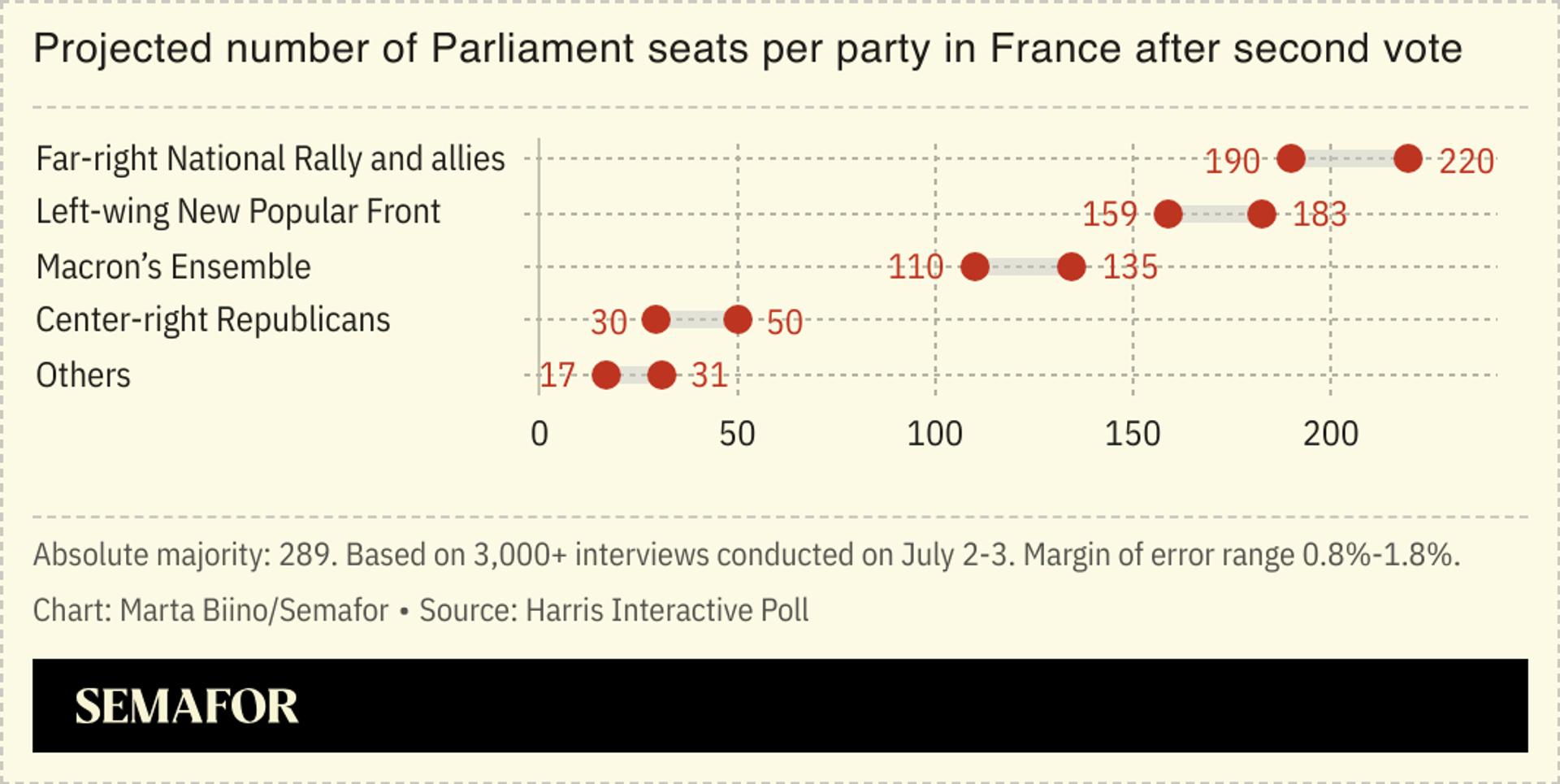The News
French voters go to the polls on Sunday in the second and final round of parliamentary elections, in which the far right is expected to win the most seats but fall short of an outright majority.
A Harris Interactive poll suggests Marine Le Pen’s National Rally and its allies will win between 190 and 220 parliamentary seats — short of the 289 needed for an absolute majority.

The results could lead to legislative gridlock, and undo President Emmanuel Macron’s legacy.
SIGNALS
The far right is positioning itself as the ‘sole defender of democracy’
The National Rally is adopting a number of techniques to bolster support, like positioning itself as the “sole defender of democracy” that can counter “the chaos of the far left,” France 24 wrote. The party’s president, Jordan Bardella, has sought to present the controversial far-left politician Jean Luc Mélenchon as the leader of the left-wing coalition, and hinted that he would become prime minister should the left secure the election, a claim the left has disputed. NR has also made “vicious attacks” on the left throughout the campaign, claiming they side with Hamas in the conflict with Israel and questioning the coalition’s integrity, France 24 added.
Macron’s centrism failed
Analysts pointed to Macron’s near-total absence from the campaign trail as a sign of his unpopularity, what some in his own alliance have characterized as a “de-Macronization,” The Telegraph reported. The French president has “failed to create a powerful centrism” in Europe, a politics professor noted in Project Syndicate. The approach he took when he came to power in 2017 — of simply adopting the policies that “worked best” regardless of left or right ideology — only worked for a time, but his movement developed a reputation for being technocratic and authoritarian, and remained anchored to the figure of a charismatic leader rather than transforming into a legitimate political party.
Le Pen and National Rally may have to moderate some of their positions
National Rally was born as a radical-right group, but Le Pen has “put some water in her wine” over the years and worked to moderate some of the party’s positions, especially over defense and security, one expert told Politico. Some analysts have described the process as “melonization” — a reference to the far-right Italian Prime Minister Giorgia Meloni, who also toned down her anti-NATO and anti-EU discourse after coming to power. But a more moderate approach internationally doesn’t necessarily mean Europe can breathe easy, Politico added. Neither leader has softened their position in their home country, and a collaboration between the two may mean an even more “radical and confrontational” turn for the continent.

